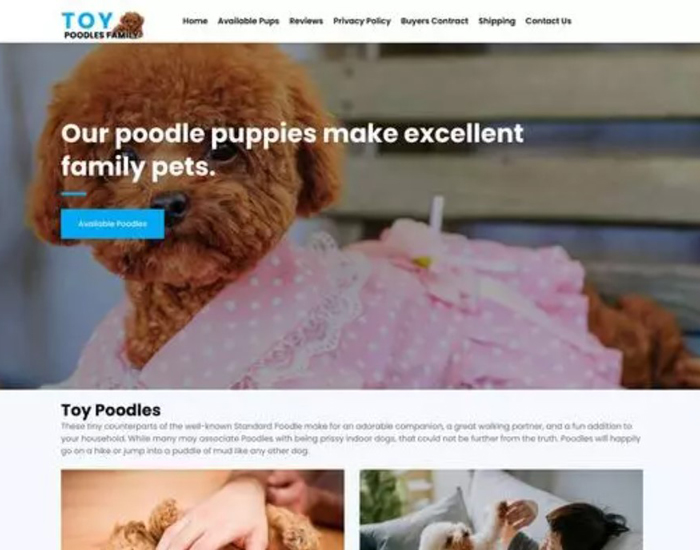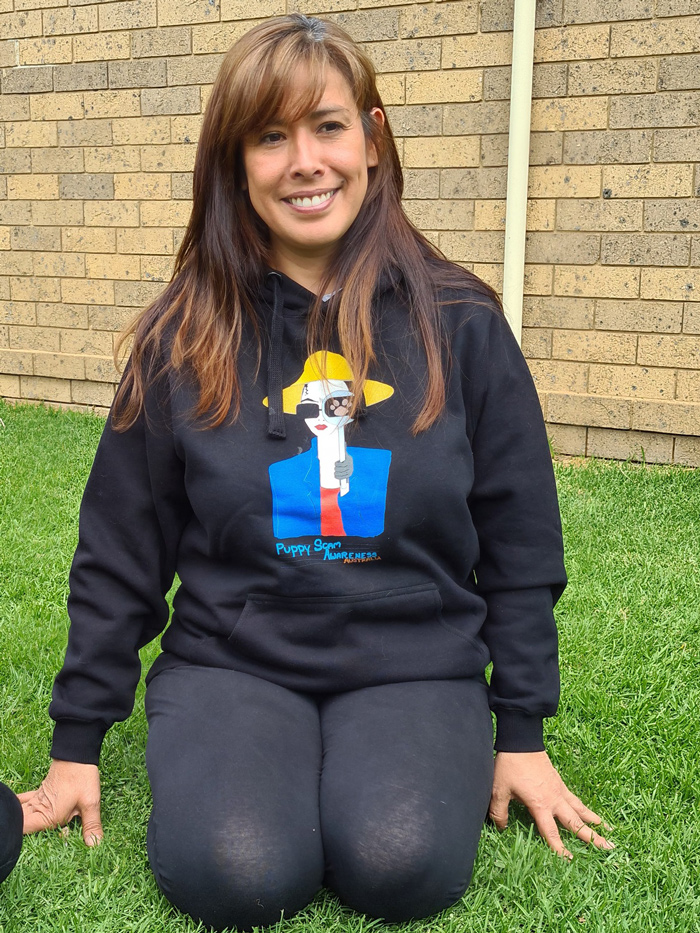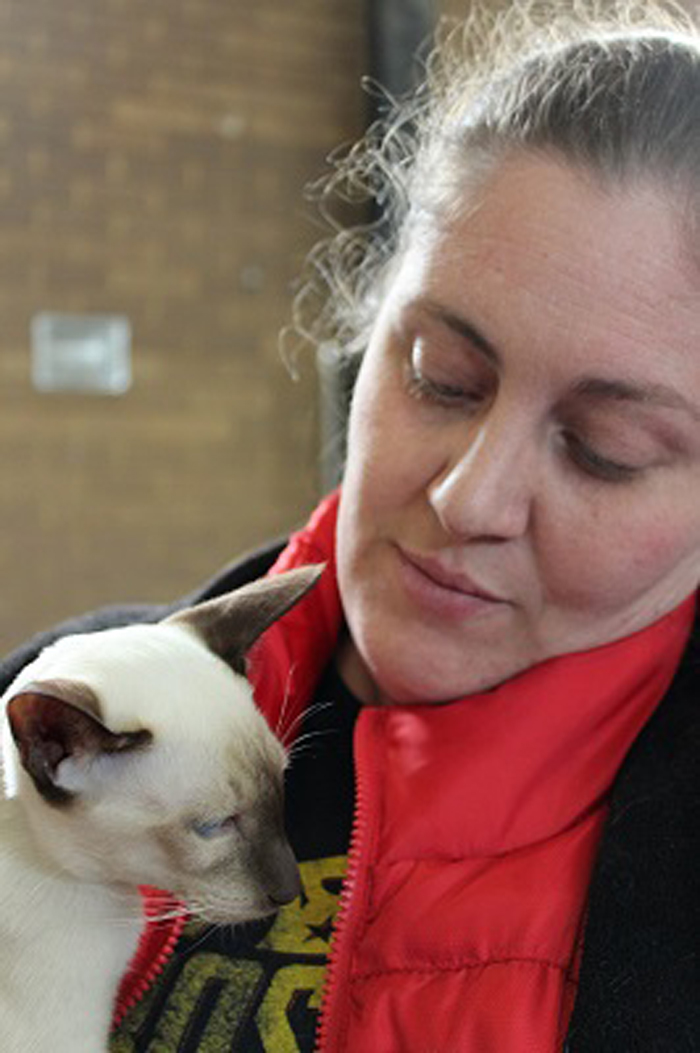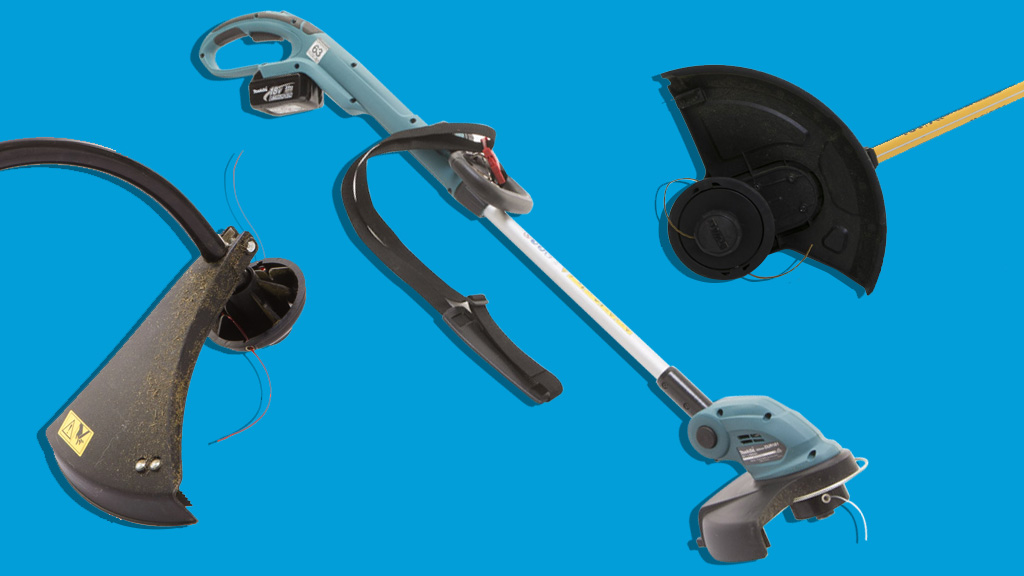Get our independent lab tests, expert reviews and honest advice.
How to avoid getting caught up in the pet scam boom

Need to know
- Losses from pet scams in Australia have increased by more than 1000% over the last two years
- Experts say the surge in demand for pets brought on by the pandemic has led to easy pickings for scammers
- Buyers and breeders alike have suffered from the proliferation of fraud, but have found ways to avoid and disrupt the scammers
Ben (surname withheld) and his family had just been at a pet shop buying toys for a toy poodle they had ordered online when he received a suspicious message.
It was his first clue that they had just lost $2500 to a puppy scam.
“We were all in the car when it happened. My eight-year old son was distraught and cried. The website did look very professional … but the minute I saw that email from a Gmail address, it was kind of obvious to me.”
It was the sort of email that has become a hallmark of the burgeoning pet scam industry: a request for more money to cover ‘unforeseen’ costs that comes after aspiring owners have already paid all they had expected to for an animal.

For Ben, a teacher on the NSW Central Coast, it was a plea for an extra $1950 to cover shipping costs, and the fact it had come from an email address unconnected to the website he had already paid made him realise no dog would be arriving anytime soon.
“I thought: ‘Well, a normal company would be aware of those sorts of things prior.’ Then I noticed that the email address wasn’t from the domain of the website, it was a Gmail account. That was when I was like; ‘Okay, we’ve been scammed.'”
An explosion in pet scams
The COVID-19 pandemic has proven a boon for pet fraudsters.
As the first lockdowns descended over Australia in 2020, sophisticated scammers swung into gear, capitalising on the fact that many people were searching for a companion while being prevented from travelling to see the animal in person.
The ACCC sounded the alarm on puppy scams in particular in mid-2020, warning that a swathe of fake websites and online classifieds promising sought-after dog breeds were popping up to meet the surge in demand for pets.
And the trend has continued – Ben and his family are among the growing number of Australians who have fallen prey to an online pet scam.
Losses top $4.2m
Data provided by the ACCC to CHOICE shows losses from pet scams of all stripes have increased more than 1000%, going from just over $375,000 in 2019 to more than $4.2 million last year.
The number of scams involving pets reported to the consumer body has similarly shot up – an increase of over 500% took the number of reports from 498 in 2019 to 3332 in 2021.
Pet scams in Australia
Money lost in in 2019 – 0.375 million dollars
Money lost in in 2020 – 2.2 million dollars
Money lost in in 2021 – 4.2 million dollars
It’s an incredible trajectory that shows no sign of slowing down. Australians have already lost over $1.2 million to pet scams in the first four months of this year, a figure that’s 37.5% higher than the same period last year.
The ACCC says most scams involve dogs (especially puppies), with cavoodles and other poodle breeds the most common in fake listings.
But promises of cats and kittens are also appearing in attempts to fleece prospective pet owners, with the ACCC reporting Maine Coon breed kittens are commonly featured on bogus pet sites.
The significant period of lockdown experienced by some across the country, and the scarcity of genuine animals, all collided to create an effective opportunity for offenders to successfully exploit
Dr Cassandra Cross, criminologist, Queensland University of Technology
According to criminologist and associate professor at Queensland University of Technology’s School of Justice, Dr Cassandra Cross, the success of pet scams comes from the fact that buying a pet is an “emotional decision” which defrauders can easily take advantage of.
She says the events of the last two years have only served to tip the odds in their favour: “With ongoing lockdowns, people were looking for company and the numbers of available pets reduced.
“The desire to purchase a pet, the significant period of lockdown experienced by some across the country, and the scarcity of genuine animals, all collided to create an effective opportunity for offenders to successfully exploit.”
Owners and breeders bite back
The increase and its timing is no news to Sydney woman Sandy Trujillo.
Trujillo is the driving force behind the Puppy Scam Awareness Australia website and Facebook community and has spent the last two years supporting scam victims and raising awareness of their plight.
It’s an occupation that’s turned into something akin to a full-time job for the former vet nurse, who was compelled to take action after losing $1600 herself to a toy poodle scam in May 2020.
“After I got scammed, I started to post about my experience on social media. And a lot of people started coming forward saying: ‘Hey, that happened to me!'”

This finding of a community, along with a lacklustre response from authorities, drove Trujillo to convene a virtual forum where tips to avoid scams could be shared.
“We started listing the scams on the Facebook page going: ‘Hey, here’s another one, beware, check it out. Look, this is fake.’ And we came up with ways to investigate these things.”
And aspiring pet-parents are not the only ones who have been leading the fight against dodgy operators — reputable breeders who have seen their online presence hijacked by scammers have also been fighting back.
Reputable breeders who have seen their online presence hijacked by scammers have also been fighting back
Melanie Bennett had been breeding cats for about 15 years when in June last year she found out she had been caught up in a scamming operation, following an angry phone call.
“I had somebody ring me up and abuse the hell out of me for not sending them their kitten that they’d paid for. And then I had somebody email me … saying ‘I think your business was being impersonated on another website.'”
The Gippsland-based cattery operator soon found the website, which was advertising itself as a place to buy kittens.
It featured her name and was using the same name and ABN of an existing site she runs, Cat Breeders Australia, which hosts classifieds from fellow breeders, but doesn’t sell animals directly.

Fearing misdirected legal action from vengeful victims, she reported the matter to authorities. She also contacted the domain host of the site and had it taken down.
It was something she would end up doing seven times over the following months, as fraudsters continued to set up scam copies of her site in an attempt to score more money off unsuspecting kitten buyers.
“I was doing daily searches on Google to try and find the latest thing using their phone numbers that they had listed or their address. I was searching almost every single day, trying to find their newest website that they’d set up.”
Animals mean a lot to people and when you get ripped off of thousands of dollars, because it’s never small money, for this animal that never arrived, it’s heartbreaking
Melanie Bennett, cat breeder
Bennett is confident her dogged efforts scared the scammers off from co-opting her business name, but is frustrated by the number of pet scams she’s still seeing on social media and online classifieds.
“Animals mean a lot to people and when you get ripped off of thousands of dollars, because it’s never small money, for this animal that never arrived, it’s heartbreaking,” she says.
How to spot and avoid a pet scam
When it comes to puppy scams, Sandy Trujillo and her community have come up with a well-honed set of ways to identify them.
A key giveaway can be the photos and ‘customer testimonials’ included in the listing, which are often copied from legitimate sources.
“At the beginning, I was looking at their pictures, and just seeing if they’ve been replicated anywhere on the web, so I would do what’s called a Google reverse image search from the photo.”
“Then I would copy [a testimonial], pop it into Google and search it word for word. And you’ll see five different pages come up with the exact same testimonials. That’s how I find even more scam pages because you can see the real one and all the other pages that have copied it.”
Watch out for WhatsApp numbers
Trujillo also advises people looking for puppies to be sceptical of ads with WhatsApp phone numbers starting 0480-0 or 0488-8, saying she’s found many scams use these numbers.
Her organisation recommends taking the contact details displayed on a puppy listing, such as the phone number or email, and putting it into a search engine along with “scam” to see if anyone else has raised concerns about them.
Trujillo’s search tips are echoed by the ACCC, which encourages prospective pet owners to search online for the exact wording of any suspicious ad and any supposed customer testimonials.
These word-for-word searches can be done by copying the text, pasting it into a search engine and then putting quotation marks at the beginning and end to narrow down results to exact matches.
How to spot a pet scam
Four ways to know if the online pet ad you’re looking at is a dog deal
1. Photos aren’t original: The pictures being used can be found on multiple other pages.
2. Text has been copied: Customer testimonials and other sections of text are identical to content on other sites and listings.
3. It’s too good to be true: The asking price comes in well under most other sellers.
4. There’s too much choice: The retailer is offering a large number of breeds to choose from.
For those looking for a feline friend, Melanie Bennett says there are a couple of dead giveaways:
“[Scam cat sellers] often have Savannah listed as an available cat. The Australian government has banned the Savannah cat – you cannot import it into Australia.”

She also advises buyers to be wary of services that advertise a large variety of cat breeds, saying sellers offering six or more different breeds would be unsustainable in real life.
“To have that number of kittens for sale and that number of different breeds, you would need to have at least 100 cats in your breeding program to begin with. [That sort of operation] would just be way too big, from a business point of view.”
In all cases, the ACCC advises buyers not to pay for an animal without seeing it first – either in person or over a live video chat – and avoiding retailers asking for payment via money order or wire transfer, as it’s difficult to recover funds sent this way.
The Commission also recommends that, if you’re having doubts about a pet seller, you should seek advice from someone in the industry, such as a reputable breeders’ association, vet or local pet shop.
‘Reputable’ classifieds website no guarantee
It additionally warns against trusting an ad just because it appears on a reputable classifieds website, saying scammers often post in these media.
The ACCC says pet scammers base their business on offering deals that are too good to be true and that buyers will soon find the tables quickly turned against them if they take the bait.
This usually comes in the form of repeated requests for more money – often to cover transport costs – which customers will encounter once they have paid the originally-advertised cost of the animal.

What to do if you’ve been scammed
The ACCC says anyone who believes they may have given personal information or money to a scammer should contact their bank or financial institution as soon as possible.
It also recommends reporting the incident via its Scamwatch website, as well as to the platform hosting the scam and the federal government’s ReportCyber platform.
ReportCyber is a service where individuals or organisations who have given scammers money or personal information can file a report which is then passed onto police as a case of cybercrime.
Many of the offenders are based overseas and difficult to track down without a collaborative effort with law enforcement across a range of countries
ACCC spokesperson
The ACCC says its Scamwatch body doesn’t investigate scams itself, but works to raise awareness and passes the information from the reports it receives onto law enforcement to aid in fraud disruption and investigation.
But a spokesperson admits such action can be challenging, explaining that “many of the offenders are based overseas and difficult to track down without a collaborative effort with law enforcement across a range of countries”.
Justice isn’t always done
And while there have been several instances over the past two years of Australian based pet scammers being prosecuted, many victims miss out on seeing justice served.
Out of the three people we spoke to who lost money to pet scams, all had filed reports with either Scamwatch, ReportCyber or police, but none had heard since from the authorities about whether their case was being investigated.
Out of the three people we spoke to who lost money to pet scams… none had heard since from the authorities whether their case was being investigated
One victim was able to get a refund from their bank, but this was only after they went to the Australian Financial Complaints Authority, which found the bank had mishandled the money transfer process.
For Ben on the Central Coast, the story has had a happy ending, of sorts. He and his family were eventually able to get a toy poodle from a Sydney breeder.
“It was very difficult because it was during the COVID pandemic and lockdowns, so we couldn’t go and view the dog physically,” he says. “So again, the process was still quite nerve wracking … We had to rely on FaceTime.”
His advice now is that you can never be too careful when looking for a puppy online: “You’ve just got to take every precaution you can in order to protect yourself from being taken in.”




